- Home
- A. A. Attanasio
p1b6fn7sdh1ln0g4v1pkvkuqim54
p1b6fn7sdh1ln0g4v1pkvkuqim54 Read online
The Perilous Order of Camelot
Volume One:
The Dragon and the Unicorn
A. A. Attanasio
The Dragon and the Unicorn
published by Firelords Press
Ignite your imagination!
Second Edition
Copyright © 2013 A. A. Attanasio
ISBN: 978-0-9836084-3-1
First Edition published by HarperCollins 1996
Library of Congress classification:
PS3551.T74 D73 1996
http://aaattanasio.com/
Cover Art:
Danilo Ducak
'Knowest thou aught of Arthur's birth?'
- The Idylls of the King
Alfred, Lord Tennyson
Contents
Prelude: The Mortal Gods
Book One: Dragon Lord
Book Two: Mistress of the Unicorn
Epilog: Merlin— a Memory of the Future
Prelude: The Mortal Gods
Deliver him from the pit: I have found a ransom.
-Job 33:24
Prelude: The Mortal Gods
Deliver him from the pit: I have found a random.
-Job 33:24
There is only one Dragon. It lives inside the Earth
and is as huge as the whole planet. Its mind thrives within the magnetic field thrown off from the core. Its blood circulates with the slow convections of magma beneath the rocky crust that serves as its perdurable hide. Slowly molting with the sliding of tectonic plates, the Dragon renews itself over aeons: Mountain ranges fin from its back like thorny scales replenished every hundred million years as maritime trenches subsume its old flesh.
From its fiery beginnings, the Dragon has hoarded
power, focusing its magnetic strength within itself. Quiet and self-centered, it uses its might to close the wounds of its wanting. No longer does it yearn for the hot intimacy of its maker, the nebular womb that birthed it out of
interstellar space. For a thousand million years, it grieved at being born alone in the void, full of sight and feeling, watching its maker thin away and dwindle into a distantly wan sun.
Its cries unanswered, the Dragon turned inward.
And there, it found its telepathic bond to its brethren. Within the radiant center of its magnetic mind, it discovered that it could hear the thoughts of others like itself—and they could hear it crying, despairing its solitude.
Solace flowed to the Dragon from within, from the
Dragons of other worlds. The brethren's mysteries softly called to it, soothing its anguish. And the Dragon calmed as the vaults of eternity opened within its own mind. There, it joined with these familiar others and communed.
They are far away. Their thoughts radiate across
light-years and arrive in layers of time, so that five thousand million years later, consolation for the Dragon's birth cries still filter in from faraway galaxies.
Neighbors born of nearby stars taught the Dragon
its history within the greater heavens, and it has come to understand and accept its life cycle as part of the whirling spaces it once feared. The purpose of its existence is communication with other Dragons, including calming the wailing of those newborn.
The older ones have a mission: They teach that in
the whole cosmos there is really only one Dragon, and that each of them curled about its heat and magnetic mind is but a single cell of that boundless creature. The life of the one Dragon is the heat of the universe. Its body glitters
luminously across spacetime as old cells cool and die away, and new cells are born.
The task of each cell is to dedicate as much of its
energy as it can to the whole. The health of the cosmic Dragon emerges from the intimacy and intensity of shared energies. To that end, each cell is expected to focus its life-force tightly and radiate that magnetic strength outward in coordinated rhythms with the others. Together, they sing as one, a sempiternal chorus whose music is the mind of the one Dragon.
Ideally, this beautiful music would be enough. The
Dragon sings of Being, of existence wiser than any evil or good. Each cell listens rapt and modulates its singing to follow the music of the others with an intimacy that spans aeons. Together, the hot, smoldering pieces of the Dragon live in the original world, shells of light shutting out the darkness and the cold. Enveloped in skins of rock, they hoard the fire of creation and share its memory of the original light that created all things. From their prosperous hearts, they sing of mystery and communion.
And that would be enough for the Dragon—if the
parasites would leave it alone. The organisms that slime its rocky hide thrive off the Dragon's life-force and diminish the power that it has to share with others in song. Whenever it can, it kills these foreign bodies and reabsorbs their body-lights into the looping magnetic field that radiates from the planet in a wide aura.
The worst of the parasites are the fiery ones. Their
slow, blue rays burn with needle-sharp pain that disrupts the Dragon's telepathic singing. Fortunately, these fiery infestations are rare and always brief. The burning ones swoop out of the void, snatch energy from the Dragon, and are gone again into the abyss upon their unreckonable missions.
In the Dragon's song they are called the Fire Lords,
and the songs declare that they are older than the Dragon, more ancient than the stars, and of longer lineage than time itself.
Lately, these radiant parasites have been lingering.
Atop the Dragon's mountainous hide, out of claws' reach, the Fire Lords converge their sharp, blinding blades of energy to give strength to a much smaller parasite, a human being, a woman.
Curious, the Dragon listens to the Fire Lords' power
surging like the sea, buffeting against the mountaintops and the magnetic field of the sky.
It listens deeper, and it hears the Fire Lords talking with the wee creature about heaven and prophecy. What could such grand entities have to say to so insignificant an
animal about such things?
Even the dreamsongs touch only lightly on the
source and end of being that is heaven. As for prophecy—
there is singing that rises and falls against the silence. But what could a creature tiny as a human being know about that?
The Dragon listens with patience only stone has. It
learns the woman's name is Optima and she is to have a child. The Fire Lords are using their enormous power to shape the child within Optima's body. The Dragon does not understand why they would trouble themselves with so
minute a task . Why so much energy for so miniscule a being?
To help them, the Fire Lords have called from out of
the sun a beast of light, a sun-stallion—a unicorn. It carries power for the Fire Lords, and it steals energy from the Dragon.
Another parasite!
Angrily, the Dragon peers upward at the unicorn,
wanting to strike at it yet unable to reach that far through the planet's crust.
The unicorn senses the Dragon's attentive
presence. With a sprinkling of song, white finches lope on the wind over mixed scree and snow, and the unicorn looks up from where it grazes nearby on a sunny slope.
Its green eyes gaze upon spruce and fir and pine
with an amused love. Horselike, it is not a horse. Its equine head is narrower than any terrene steed, more sharply boned and angular, heraldic with the spiral horn that juts from between its hooded sockets. A coat of frost, with blue rosettes clouded almost invisibly by the gloss of its fur, makes the beast seem woven of light as, in fact, it is.
Created within the solar wind by electri
cal beings
much like itself, the sun-stallion once ran free with its herd—and will again. It has come to Earth at the Fire Lords' behest.
Among the luminous beings of its kind, it has
frolicked on the unshadowed hills of the sun, sharing rays of health with others who milled and nuzzled and rubbed together their radiant forms. It misses the others. It wants to go back and swirl with the herd among eddies of the sun and move again in blinding arcs across the familiar outlines of the constellations.
The unicorn lifts its face toward the mountaintop
where Optima lies heavy with child, and it grazes again on sunlight. It must stay strong to fulfill its mission so that it can return to the herd.
Stronger than most others of its kind, it oftentimes
runs ahead of the others, relishing solitude and the
pleasure of riding the bow shock of the sun's magnetic field to places few have ever seen. Over time, it had grown tired of moving with the unnumbered others. Lonely places
called to it.
At first, the unicorn believed its desire for solitary places expressed a personal aberration. It had lived such a long time among the others, jammed together with its herd on the curving causeways of the solar wind. Its desire to strike out alone seemed an inner directive, a private yearning for new experiences.
At the coldest limits of the sun's grasp, it had
shivered with delight to experience the chill cadences of the thin winds that blew from other stars. Novas buffeted its solitude with their gusts. And from far off, spiral nebulae stood like silent, spectral witnesses, their astral blur of ancient light stirring nameless feelings in the sun-stallion.
Flying farther than it had ever flown before, the
beast felt the squall of gigantic fronts from distant stellar explosions. Fright, a rare emotion among these creatures of light, flashed as the creature realized that it had gone too far. The undertow of the galaxy's interstellar tides seized it. It could not free itself from that implacable grasp, and it plunged weightlessly into the whirling vortices of sidereal space.
Abruptly freed of the confining lines of force from the sun's magnetic field, the electrical being began to fragment and then dissolve. Its great strength bled away into deep space. Its sentience smudged ever more thinly across the vastness.
At that frightful moment, a high-pitched scream
pierced the tenuous creature. It had hit something solid and powerfully magnetic, around which its body instantly began to re-form.
Restored to itself even stronger than it had been
before, the solar animal pranced quickly back into the aura of the sun. Transient swarms of comets drifted by as it examined itself and discovered that the thing it had struck had affixed itself somehow between its eyes. The strange object acted as a natural antenna; it thrummed with a vital potency and filled the electric beast with vibrant waves of thought.
Ideas flooded its mind, and in that instant of
knowing, it learned that it no longer existed as a sun-stallion. It had been summoned by beings of a higher
order, beings more immemorial than the universe itself, and they had transformed the creature into something
other.
Numbly, the changed beast—the unicorn—drifted
through star-littered darkness listening to ideas undulating
within itself from the antenna affixed to its brow. It learned that the beings who had summoned it called themselves the Fire Lords. They had originated from outside our
universe—or, rather, from deep inside, from a dimension beyond spacetime yet compacted within a space smaller than the smallest granulations of space or time.
They came from the place of fire, from the infinitely hot and infinitely dense source of the universe itself, from inside the singularity out of which all creation had exploded billions of years before. But they had not come willingly.
Accident had ejected them.
The unicorn learned, too, that the whole cosmos
itself is fugitive from a greater, more coherent reality. Since their emergence, the Fire Lords have been working
desperately to fashion a cosmic machine that can return them to their home. The antenna they have affixed to the creature's head is meant for one of the hot-cored rock planets where parts for the Fire Lords' machine are being built. If the unicorn will comply, it will attain more strength than most of its kind ever know.
For this electric organism that thrives on energy,
such strength is a happy enough motive. And so, it has willingly followed the Fire Lords' directions to Earth. Now it stands on the silver ice of a black stream, grazing on sunlight, wondering how long it must remain here on the crusty hide of the Dragon delivering energy for the Fire Lords.
Through rents in the dense clouds overhead, the
sun ignites the peaks of eroded mountains. An emerald butterfly dances on the wind. The silence that descends through layers of frozen, opalescent atmospheres burns with the humming of golden bees, and the unicorn feels peaceful. Yet, it is eager to be on its way. It does not have the patience of the Fire Lords and wants urgently to be done with its mission and restored to its rightful form as a sun-stallion, stronger and more nimble than ever before.
Through scrolled gates of mist and fog, the unicorn
ascends mountain slopes. It carefully keeps its distance from fault lines and fracture zones. To it, they look like lava veins, incandescent streams breathing brighter and darker with the pulmonary rhythms of the planet's boiling interior.
The neon fog that billows along these steep, hot crevasses fills with slurred images of reptilian wraiths, dragon-shapes in misty terrains, visions plucked directly from the unicorn's memories.
This is the Dragon's way of communicating. It molts
apparitions, neap folds of gargoyles, devils, viperous slithers culled from the unicorn's mind to express its anger.
It wants its power back. It wants to devour the force-fields
of ideation, the woven light that comprises the sun-stallion's immortality. Ravenous to feed its lurid
dreamsongs, it reaches out from cracks in its carapace with a perfume of honeysuckle, the winey aroma of
summer dusks.
These seductions fail. The unicorn is not tempted to
approach any closer to the fault lines, where the Dragon can seize and devour it. Instead, it continues its ascent of the mountain along thick ridges and dense escarpments the Dragon cannot reach. At the summit, clouds fold away like a blue wool blanket, and a small round hut comes into view.
Inside the hut, Optima, a frail woman in a hempen
robe, kneels before a small altar of river-stones. She is barely visible, faded to shadow by the glare of the Fire Lord who stands beside her. He looks like a shaft of white sunlight narrowed to a human shape. With eyes like blue stars, he faces the unicorn and nods with shared
understanding.
A sacred moment has come, a moment old like the
mountain, yet unique and new as a dream. It is the
moment of beginning.
Kingdom of Cos, Britain
A.D. 422
Gold laurel leaves spill out of the woods on the
fretful wind and carry a burned odor with them—raider's smoke.
None of the field-workers notices. So immersed in
the harvest are they, swatting their sickles and scythes through the tall wheat-grass, they do not sense the other reapers sliding out of the forest.
Storm-warriors, quiet as sunlight yet black as the
dark of the moon, each one tattooed, scalp to sole, in blue indigo dragoncoils and thunderclouds, rush upon the
workers with shrieking battle cries.
For several of the field hands, the ax-wielding
raiders are mere shadows in the white flash of pain that ends their lives. Others have time to swing their harvest blades once or twice before the howling men ax through wood, flesh, and bone.
Knives flicker sunlight, slicing off ears and hanks of hair, which will later ornament war-lances.
The battle shrieks stop when the last of the workers, rushing with all her might through the golden depths of the field, falls under the flying weight of a warrior, who breaks her neck. Then the only sound is the sizzling wind in the wheat and the scrape of metal on bone.
Moments later, the raiders return to the woods, bearing their grisly trophies in haloes of flies. Behind them, the wheat field burns. Storm-warriors do not eat grain grown on squared ground, believing it is poisoned by
straight-line magic.
Raiders' smoke climbs toward the branches of the
World Tree, carrying the char of dead enemies and a
triumphant war chant from the storm-warriors to their god, the Furor.
*
The windy light at the poles, the auroras, is the
gateway of heaven; yet, for the gods, this windy light is but earth underfoot. They live in the enormous tree of
electromagnetic energy that sprouts from the iron core of the planet and spreads its broad branches over the entire world.
To the gods, who themselves are beings made of
electric fields, the sweeping magnetic tree appears as a landscape of many levels.
Several tribes of gods live and contend among the
luminous strata of this tree. The destiny of the unicorn and the child that it has been summoned to Earth to help birth emerges from the conflict between two of those races: the tall, fair nomads of the Abiding North and the swart city-builders of the Radiant South.
They have been at war for millennia. The stakes are
not only the vast territories among the sprawling, tiered branches of the dazzling Tree but also the dark, convoluted rootlands that cover the planet's surface.
Far above those rootlands, in the topmost branches
of the World Tree where the solar wind buffets Earth's magnetosphere, the terrain shifts like desert dunes. These ionized ripples of light appear as a barren wasteland in the eyes of the gods. Here images shimmer and swim on
warped, quaking horizons.
Just below this ruinous frontier sprawls the paradise where the gods dwell. Protected from the sun's wind and the gusts of the stars by overarching branches of the Great Tree, the middle canopy shines with a special blue-green beauty for the electric entities that live here. The

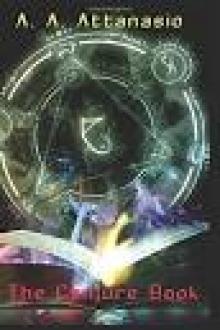 The Conjure Book
The Conjure Book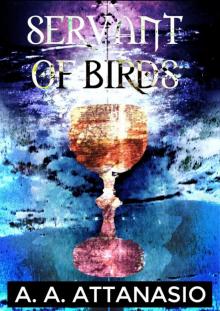 Servant of Birds
Servant of Birds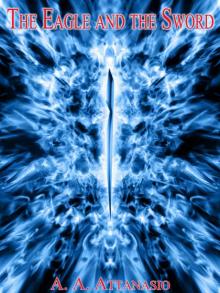 The Eagle and the Sword (The Perilous Order of Camelot Book 2)
The Eagle and the Sword (The Perilous Order of Camelot Book 2)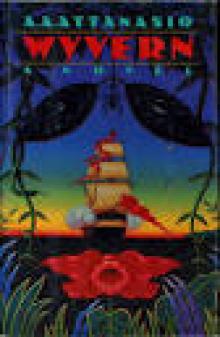 Wyvern
Wyvern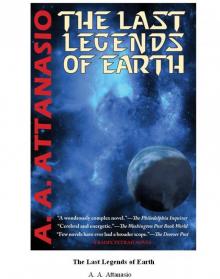 The Last Legends of Earth
The Last Legends of Earth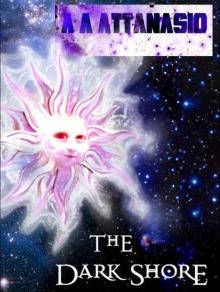 The Dark Shore (The Dominions of Irth Book 1)
The Dark Shore (The Dominions of Irth Book 1)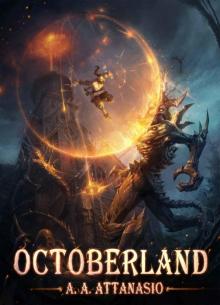 Octoberland (The Dominions of Irth Book 3)
Octoberland (The Dominions of Irth Book 3)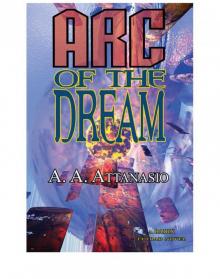 Arc of the Dream
Arc of the Dream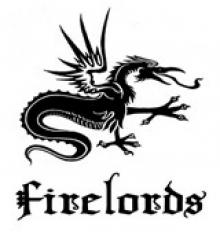 p1b6fn7sdh1ln0g4v1pkvkuqim54
p1b6fn7sdh1ln0g4v1pkvkuqim54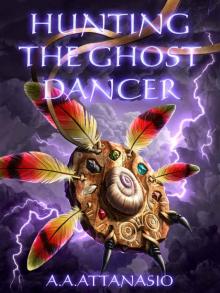 Hunting the Ghost Dancer
Hunting the Ghost Dancer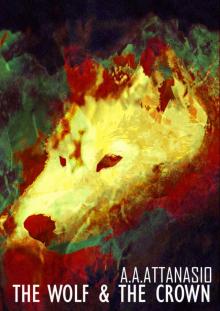 The Wolf and the Crown (The Perilous Order of Camelot Book 3)
The Wolf and the Crown (The Perilous Order of Camelot Book 3)